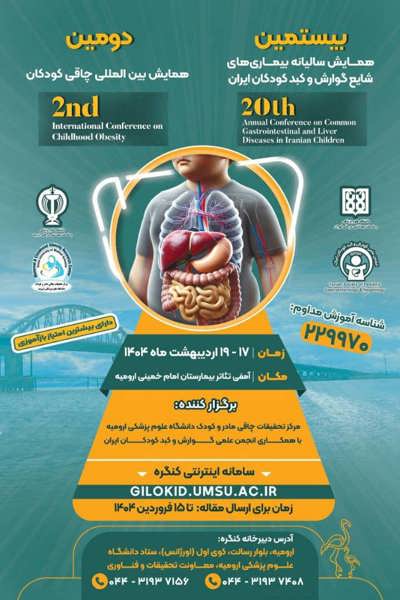0% Complete

صفحه اصلی
/
بیستمین همایش سالیانه بیماری های شایع گوارش و کبد کودکان ایران و دومین همایش بین المللی چاقی کودکان
نویسندگان :
کلمات کلیدی :
چکیده :
لیست مقالات بایگانی شده
Milad Jalilian - Raheleh Rasad
Adviya Ali - Saliha Muzaffer - Muhamed Rzgar
Yousef Mohammadpour - Shahram Ebrahimi Moradali - Vahid Hoseinpour - Rasul Bidel Nikoo - Saeideh Rahimi
Fatemeh Pazhouman - Amirhossein Moussavi moghanjougi - Khadijeh Elgeztin - Ameneh Elgeztin
Mahdie Feizi Eliyas Abad - Mortaza Taheri-Anganeh - Mohammad Reza Asgharzadeh - Ebrahim Mazloomi - Hadi Maleki-Kakelar
Elahe Karimipour - Haniye Karimipour
Fatemeh Pazhouman - Amirhossein Moussavi moghanjougi - Khadijeh Elgeztin - Ameneh Elgeztin
Fatemeh Yousefi - Zahra Mosavi Shirazifard
Bahman Mansouri Motlagh - Belal Pashaei - ُShahsanam Gheibi

